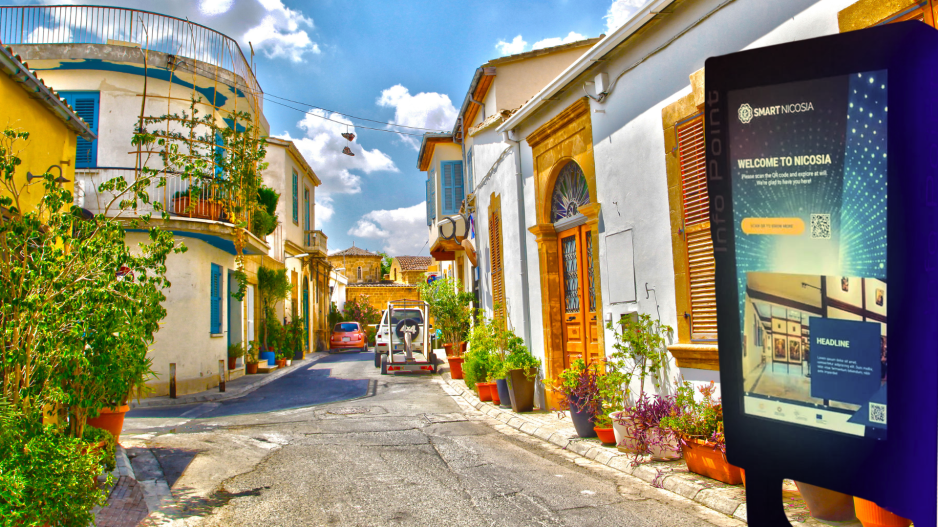How Cyprus is Embracing Urban Technology
Cyprus' journey toward becoming a hub for smart cities.
As urban areas around the world strive to become more efficient, sustainable, and livable, Cyprus is making significant strides in its journey toward becoming a hub for smart cities. Leveraging advanced technologies like the Internet of Things (IoT), artificial intelligence (AI), and big data, Cyprus aims to enhance the quality of life for its citizens while promoting economic growth and environmental sustainability. This article explores the initiatives, innovations, and challenges associated with transforming Cypriot cities into smart cities.
Cyprus is integrating a variety of smart technologies to improve urban living. These technologies are designed to make city management more efficient and provide residents with enhanced services.
The Internet of Things (IoT) plays a pivotal role in the development of smart cities. In Cyprus, IoT devices are being deployed across urban areas to collect data on various aspects of city life, including traffic flow, energy usage, and environmental conditions. This data is then analyzed using big data technologies to provide insights that can help city planners make informed decisions.
For example, smart traffic management systems use real-time data to optimize traffic signals, reducing congestion and improving road safety. Similarly, smart energy grids monitor and manage energy consumption, promoting energy efficiency and reducing costs for both consumers and municipalities.
Artificial intelligence (AI) is another cornerstone of Cyprus’s smart city initiatives. AI algorithms are being used to predict and manage urban challenges, from waste management to public safety. AI-driven predictive analytics can forecast energy demand, allowing for more efficient energy distribution and reducing the likelihood of blackouts.
In public safety, AI-powered surveillance systems enhance security by identifying potential threats and alerting authorities in real-time. These systems can also assist in emergency response by providing first responders with crucial information before they arrive at the scene.
Several cities in Cyprus are at the forefront of the smart city movement, implementing innovative projects that showcase the potential of urban technology.
Nicosia: A Model Smart City
Nicosia, the capital of Cyprus, is leading the way with numerous smart city projects. The municipality has introduced a range of digital services aimed at improving urban living. For instance, the Nicosia Smart Parking project utilizes sensors and mobile applications to help drivers find available parking spaces quickly, reducing traffic congestion and emissions.
Additionally, Nicosia has implemented smart street lighting, which adjusts brightness based on pedestrian and vehicular traffic. This not only enhances public safety but also reduces energy consumption and costs.
Limassol: Smart Tourism and Infrastructure
Limassol is focusing on smart tourism and infrastructure. The city has developed a smart tourism platform that provides visitors with real-time information about attractions, events, and transportation options. This platform enhances the tourist experience while promoting local businesses.
Furthermore, Limassol is investing in smart infrastructure, such as automated waste collection systems that optimize waste management routes and schedules based on real-time data. These systems help reduce operational costs and minimize the environmental impact of waste collection.
While the journey toward becoming smart cities presents numerous opportunities, Cypriot cities also face several challenges that need to be addressed to ensure the success and sustainability of their initiatives.
Funding and Investment
One of the primary challenges is securing sufficient funding and investment. Developing and implementing smart city technologies require significant financial resources. Public-private partnerships (PPPs) can play a crucial role in addressing this challenge, enabling municipalities to leverage private sector expertise and funding.
Cybersecurity and Privacy
As cities become more connected, the risk of cyberattacks and data breaches increases. Ensuring robust cybersecurity measures and protecting citizens’ privacy are paramount. This requires continuous investment in advanced security technologies and the establishment of stringent data protection regulations.
Citizen Engagement
For smart city initiatives to be successful, it is essential to engage citizens and encourage their participation. Public awareness campaigns and educational programs can help residents understand the benefits of smart city technologies and how they can contribute to their implementation.
Cyprus is making impressive progress in its efforts to transform its urban areas into smart cities. By embracing advanced technologies like IoT, AI, and big data, Cypriot cities are enhancing urban living, promoting sustainability, and driving economic growth. However, addressing challenges related to funding, cybersecurity, and citizen engagement is crucial to ensuring the long-term success and sustainability of these initiatives.






